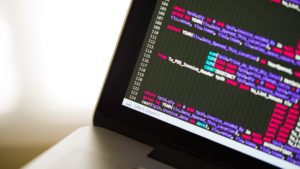Neuroscience
Empowering a community publishing articles in all areas of Neuroscience, including cognition, neurology, neuroimaging, neurophysiology, developmental neuroscience, neurochemistry, computational neuroscience, behavioral neuroscience, neuropharmacology, neuropsychology, and much more.
PLOS is a leader in Neuroscience research
More than 17,260 articles
418,164 citations
Authors from 104 countries
At PLOS, we put researchers and research first.
Our expert editorial boards collaborate with reviewers to provide accurate assessment that readers can trust. Authors have a choice of journals, publishing outputs, and tools to open their science to new audiences and get credit. We collaborate to make science, and the process of publishing science, fair, equitable, and accessible for the whole community.
Your New Open Science Journal
PLOS Global Public Health
PLOS Global Public Health is a global journal for public health research of the highest ethical and methodological rigor that reaches across disciplines and regional boundaries to address some of the biggest health challenges and inequities facing our society today. We will work alongside researchers to drive diversity and equity to broaden the perspectives we learn from.
Learn more
CALL FOR PAPERS
PLOS publishes a suite of influential Open Access journals across all areas of science and medicine.
Rigorously reported, peer reviewed and immediately available without restrictions, promoting the widest readership and impact possible. We encourage you to consider the journal’s scope before submission, as they are all editorially independent and specialized in their publication criteria and breadth of content.
Looking for exciting work in your field?
Discover top cited Neuroscience papers from recent years.
JOURNALS YOU SHOULD KNOW
OPEN SCIENCE HIGHLIGHTS IN PLOS JOURNALS
MEET PLOS BIOLOGY SENIOR EDITOR GABRIEL GASQUE

With formal training in neurophysiology and neurogenetics, Gabriel oversees many of PLOS Biology’s neuroscience submissions. Learn about new developments in the field he’s excited about.
Reproducibility is important for the future of science.
PLOS is Open so that everyone can read, share, and reuse the research we publish. Underlying our commitment to Open Science is our data availability policy which ensures every piece of your research is accessible and replicable. We also go beyond that, empowering authors to preregister their research, and publish protocols, negative and null results, and more.

WHERE PHYSICS & NEUROSCIENCE MEET
Hear from PLOS ONE Academic Editor Daniele Marinazzo on how the study of physics can be applied to neuroscience
NEUROSCIENCE IN THE NEWS
In 2020, PLOS articles were referenced an estimated 107,840 times by media outlets around the world. Read Neuroscience articles that made the news.
Ready to share your study with a wider audience? Help more people read, see, and cite your published research with our Author Media Toolkit
COMMUNITY SPOTLIGHT
My research is is focused on bridging across multiple biological scales to provide a cohesive understanding of structural and functional organisation of the brain. I think it's crucial for this endeavour to also build and disseminate tools to explore the brain with in vivo imaging methods. PLOS Biology offered an incredibly constructive review process, managed by an engaged and helpful editorial team. The solicited reviews were fair and comprehensive, and our manuscript was substantially improved by their insights.

Casey Paquola
McConnell Brain Imaging Centre, Montreal Neurological Institute and Hospital, McGill University, Montreal, Canada
FROM THE PLOS BLOGS NETWORK
Exploring code notebooks through community focused collaboration

The lack of reproducibility of research findings is a continuing concern in modern science. Code reproducibility is a central part of the problem and we have been exploring code notebooks as one potential solution.
Imagining a transformed scientific publication landscape

Open Science is not a finish line, but rather a means to an end. An underlying goal behind the movement towards Open Science is to conduct and publish more reliable and thoroughly reported research.
Editors' picks
2020

Here, PLOS ONE Staff Editors from the different subject teams reflect on the past year choosing some of their favorite research. From research on plastic pollution to improving prognosis predictions for patients with cancer, we hope that these selections will have something of interest for everyone.
WE WANT TO HEAR FROM YOU
- What do you think is the best way to ensure reproducibility for future generations of researchers?